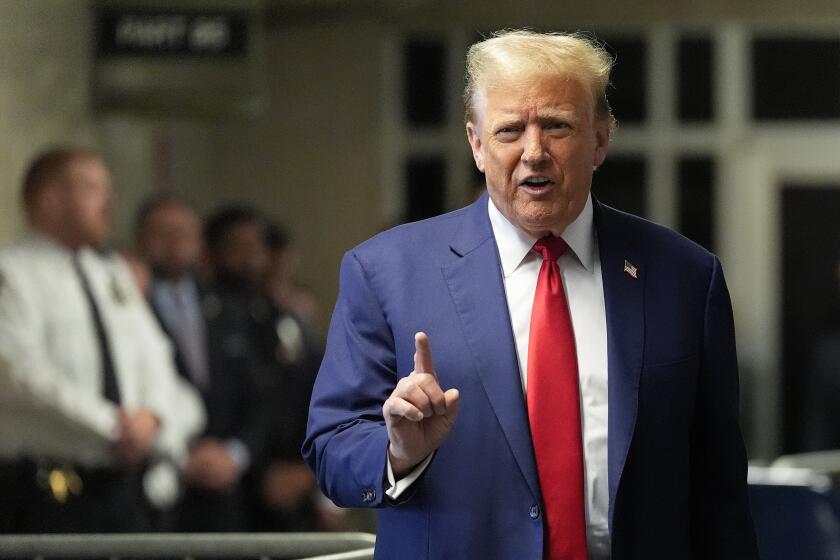Accord Reached on High-Tech Visas
Aiming to ease a labor crunch in the high-tech industry, congressional leaders and White House officials said Wednesday that they reached a compromise on a plan that will bring as many as 142,500 additional highly skilled foreign workers into the country on temporary visas during the next three years.
In reaching the compromise, congressional leaders acceded to White House demands that employers who rely on the visa program be restricted in their ability to lay off U.S. workers. It also gives the Department of Labor more leeway to investigate potential abuses than would have been permitted under earlier legislative proposals.
In turn, the White House backed down from limits it sought on how many new visas would be issued. According to the latest proposal, the number of visas granted to highly skilled foreign workers each year will nearly double to 115,000 in the next two years, and change to 107,500 in 2001. It will descend back to its current level, 65,000, in 2002.
The announcement received a mixed response from Silicon Valley executives who lobbied intensely in recent months for relief from a pervasive shortage of engineers and other highly skilled workers.
“We certainly would welcome getting the cap lifted,” said Coeta Chambers, a human resources attorney at Intel Corp. in Santa Clara. “But obviously, we don’t welcome additional [federal] oversight and regulation.”
The compromise was announced late Wednesday by Sen. Spencer Abraham, (R-Mich.), chairman of the Senate Immigration Subcommittee, who said the proposal is assured of passage in the Senate and House, and will not be blocked by a White House veto.
The legislation is designed to address a worker shortage that has left as many as 340,000 high-tech jobs unfilled nationwide, according to experts. Many of these openings are in California, where the high-tech sector accounts for about 18% of the state’s employment base.
The legislation has been primed for passage in Congress for several months, but the White House raised a number of objections last month centered on demands for greater protections for American workers.
To assuage the White House, Senate leaders agreed to a number of modifications that place greater restrictions on employers who depend on the program, known as H1B, for 15% or more of their work force.
These employers now must pledge that they won’t lay off American workers in similar job categories over a six-month period, and must pledge that they couldn’t find a comparably qualified American candidate for the job.
More to Read
Get the L.A. Times Politics newsletter
Deeply reported insights into legislation, politics and policy from Sacramento, Washington and beyond. In your inbox three times per week.
You may occasionally receive promotional content from the Los Angeles Times.






